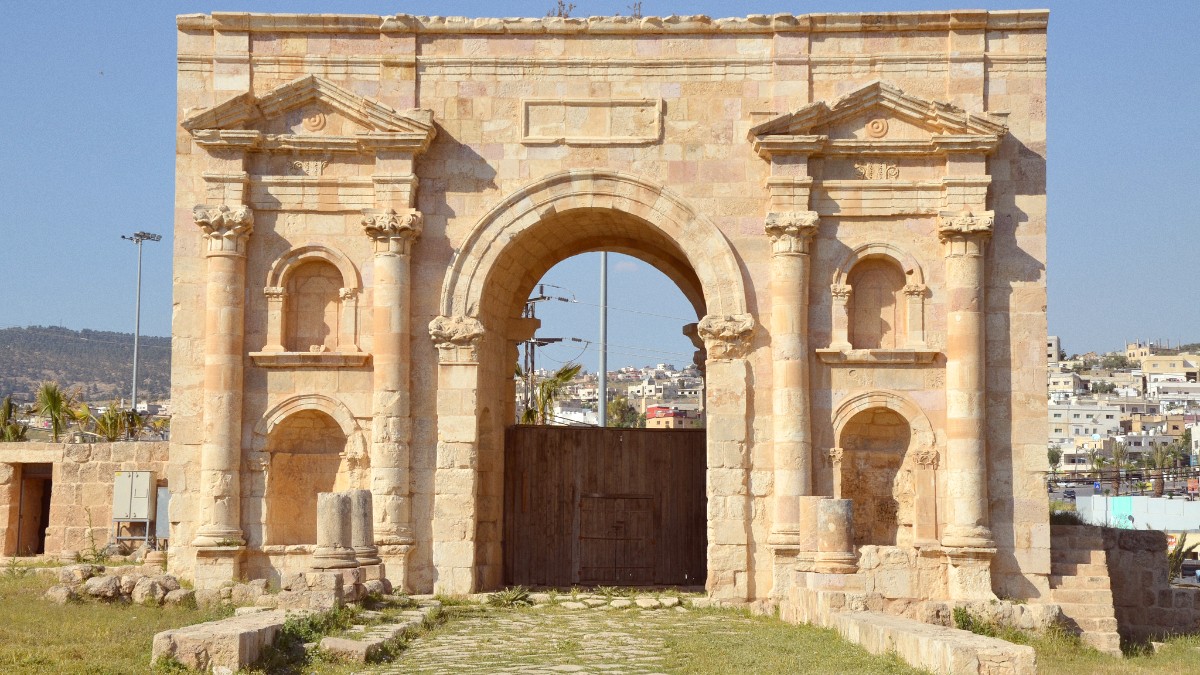
Jerash And The North, Jordan
The Jerash archaeological site mainly involves walking. The surrounding region of the Gilead hills maintains opportunities for outdoor activities.
The site features light walking. Terrain is generally easy to moderate, but it includes uneven surfaces, ancient cobblestones, and numerous steps. Suitable footwear is advisable.
For extensive hiking, head to the Ajloun Forest Reserve, managed by the Royal Society for the Conservation of Nature (RSCN). It offers marked trails from easy to moderate difficulty. The Soap House Trail (easy, 2 km) and the Prophet's Trail (moderate, 8 km) pass through oak and pine forests.
Jerash is not a main wildlife destination. Ajloun Forest Reserve sometimes has roe deer, wild boars, and various bird species.
Always check local conditions and wear appropriate gear for outdoor activities. Guided tours for adventurous sports are recommended for safety.
Deepen your understanding of Jordanian culture through various immersive experiences, especially during specific times of the year.
If you visit during July or August, this annual festival is a major highlight. It transforms the ancient city into a living stage.
The Hippodrome within the Jerash archaeological site sometimes hosts re-enactments of Roman army drills and chariot races. These shows maintain an engaging and lively glimpse into ancient Roman entertainment. Check the schedule upon arrival.
Look for initiatives through the Jordan Tourism Board website or local NGOs that connect travelers with local communities. These programs often support local livelihoods while creating authentic experiences.
The ancient Roman theaters in Jerash serve as important cultural venues, notably during the annual Jerash Festival. Outside the festival, there are no dedicated modern cultural centers or regular performance venues in Jerash town.
Jerash mainly offers historical exploration, with limited dedicated relaxation and wellness facilities within the town itself. For extensive spa treatments, look to high-end hotels in Amman or the resort hotels along the Dead Sea.
The Hammamat Ma'in hot springs, known for their therapeutic mineral waters, are located south of Amman, not near Jerash. Jerash does not host yoga or meditation retreats.
Jerash offers a quiet, culturally focused experience, with nightlife mainly concentrated in the capital city.
Jerash does not have bar districts or organized pub crawls.
Late-night entertainment in Jerash is limited to late-opening cafes and restaurants that cater to locals.
For a nightlife, Amman's upscale districts offer a wide range of options, from lounges to nightclubs.
The modern town of Jerash has a local souk (market) where you can buy fresh produce, spices, nuts, and everyday goods. It maintains an authentic experience of local life and commerce.
You find limited artisan workshops directly in Jerash. Some small shops near the archaeological site entrance sell souvenirs, including pottery replicas, small mosaics, and olive wood carvings.
Consider purchasing small pottery replicas of Roman artifacts, traditional Bedouin crafts (though these are more prominent in Wadi Rum), small mosaic pieces, or olive wood carvings. If you visit the Dead Sea, Dead Sea products make popular souvenirs.
Luxury and boutique shopping are not available in Jerash. For high-end retail, visit Amman's upscale malls and districts.
Standard international shipping rules apply for sending items home.
Check your home country's customs regulations for imported goods, especially for items like local crafts or food products, to avoid issues.
Be aware of any items prohibited for import into your home country before purchasing.
The local market offers an authentic glimpse into daily Jordanian life, good for observing locals and finding fresh produce.
Purchasing from local artisans directly supports their craft and the local economy, fostering sustainable tourism.
From ancient-inspired replicas to modern crafts, Jerash has a range of unique souvenirs. Consider Dead Sea products if visiting that area.
Support the local economy by making purchases directly from artisans and small local shops. This helps sustain traditional crafts and local livelihoods.